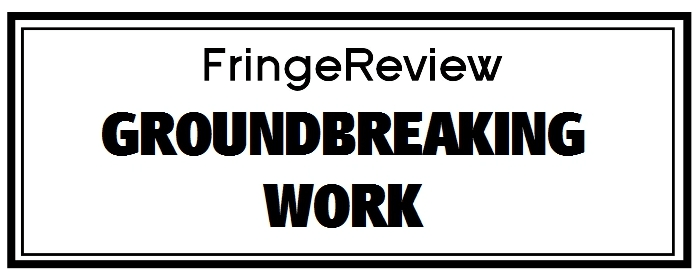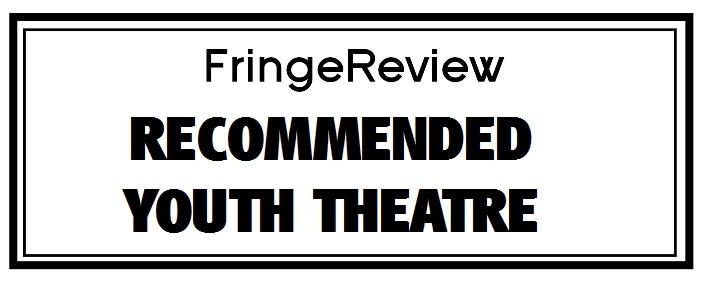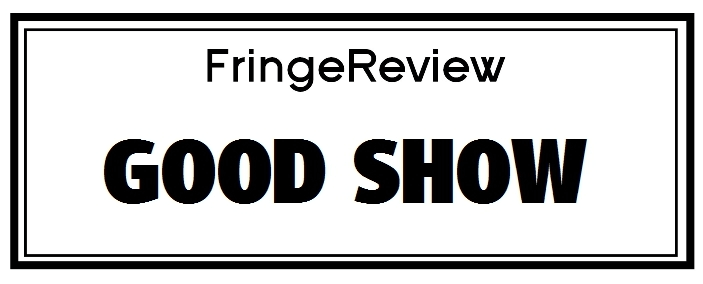Genre: Historical

Review: Mnemonic
Mnemonic is treasurable, eloquent, a rare passport. It remembers what hope, connectedness and peace smelt like. It’s worth remembering that.

Review: The Bible in Early Modern Drama: Robert Owen The History of Purgatory
Dr Will Tosh leads a discussion The Bible in Early Modern Drama. Absorbing.

Review: The Kite Runner
Spellbindingly translated to the stage and here with more power even than before. Don’t miss it.

Review: Geneva Convention
As this gets quieter, it shouts more loudly. Exciting as this is, it will devastate when it finds its arc. This might ascend into something crucial.

Review: Richard III
In a female-led cast led by the eponymous Richard III (Michelle Terry) it’s striking that the trio of cursing women is this production’s highlight

Review: The English Moor
Richard Brome’s 1637 The English Moor marks a new departure for Read Not Dead. You might say with this play it’s Read to be Dead.

Review: Sappho
A bit of theatrical democracy invoking pre-democracy crafts an exquisite irony for a rainy afternoon. Do see it.

Review: Little Women
There’s heartbreak and joy here. If you don’t know it, be surprised and moved at this hidden fringe gem, realised by this team in delicately-cut facets.

Review: Magpie
This really has no place in the Brighton Fringe. Perhaps the Festival. What is a slice of the darkest Sean O’Casey doing at a 9pm slot? Outstanding.

Review: The Other Boleyn Girl
Mike Poulton’s text gleams and snaps. Lucy Bailey’s production of it thrills and occasionally overwhelms, dazzling in its maze of missteps. A must-see.

Review: Experiment With an Air Pump
One of the stand-out NVT productions of recent years. A must-see.

Review: The Human Body
The work’s best at its quietest, where intimacy doesn’t need shouting. It’s still an intriguing development, as Kirkwood, as in her magnificent The Welkin, interrogates the condescensions of history.

Review: Hangmen
Assured, idiomatic performances. And Martin McDonagh’s distinction resonates in a manner peculiar to him alone. A must-see for anyone in Sussex.

Review: Rika’s Rooms
Emma Wilkinson Wright manages the narrative as an odyssey punctuated by screams. It’s a pretty phenomenal performance and the actor is so wholly immersed in Rika you know you’re in the presence of something remarkable.

Review: Just For One Day
Despite history’s caveats, O’Farrell’s core message isn’t about white saviours or pop stars but how ordinary people unite to change things.

Review: The EU Killed My Dad
Do see this, preferably alongside its sometime co-runner The Beautiful Future is Coming. A dizzying theatrical gem.

Review: The Good John Proctor
A valuable corrective to anticipate both real events and Arthur Miller’s take on Abigail Williams

Review: 1979
Political history told in Mamet-fast satire, imagined conversations and accurate stats. What could be more thrilling? 82 minutes later you won’t ask why this three-hander is like curing New Year’s hangover with Red Bull, ice, something illegal and a vodka chaser.

Review: Rika’s Rooms
Emma Wilkinson Wright manages the narrative as an odyssey punctuated by screams. It’s already a phenomenal performance and the actor is so wholly immersed in Rika you know you’re in the presence of something remarkable

Review: Protest Song
Tim Price’s magnificent one-man play reminds us – yells at us - how much we’re all connected, and unless we stand together, how much we lose.

Review: Oh What a Lovely War
Musically directed by Ellie Verkerk the six-strong cast play instruments throughout. They’re a phenomenal team, singing beautifully a capella or in solo. With six young actors mostly fresh out of drama school absolutely at the top of their first game, we’re treated to acting both hungry to prove and yet touched by the world they’ve entered. This is an outstanding production.

Review: The Good Dad (A Love Story), The Mitfords
Now a superb double-bill, and makes a compelling case for these two shows to be yoked together, with their intertwining of family, sisterhood, abuse and terrible consequences.

Review: Retrospective: Soldier/Sailor
Exquisitely-calibrated theatre. A gem. Mark Burgess will hopefully return with more of his past and possibly new plays. There’s plenty of them.

Review: Retrospective
This is a first-rate ensemble and Parry has mastered a superlatively-layered interaction. Forget reading, this is a brace of vibrant performances.

Review: Little Wars
Allows the best of those it portrays, to shine in one intense beam of feminist solidarity, women against tyranny and genocide.

Review: This Way For The Gas, Ladies and Gentlemen
Based on the writing of poet Tadeusz Borowski and the paintings of Arnold Daghani This Way For The Gas bears explosive witness to shape the pulse of that post-Holocaust world. Bill Smith, Angi Mariano and their colleagues have wrought an enormous service. In the last great reprise of 'Never' we realise we're seeing the finale of an emerging masterpiece.

Review: Brief Life & Mysterious Death of Boris III, King of Bulgaria
Fringe-historical gold, which means very good indeed. It doesn’t mean Copenhagen, with Frayn’s subtle collisions and collusions. It’s a different, desperately joyous animal that signs its truth and shames the world.

Review: The Yellow Wallpaper
Stephanie Mohr’s adaptation is a remarkable manifestation (no other word seems more apt) of the Charlotte Perkins Gilman short story The Yellow Wallpaper, an important realisation of a key feminist awakening. It’s good enough for you not to want it depicted in any other way.

Review: The Father and the Assassin
There’s no finer dramatization of India’s internal conflicts. Hiran Abeysekera’s Gandhi-killer Godse stands out in this thrilling ensemble and storms it too.

Review: Compositor E
Charlie Dupré’s fast-paced, dazzlingly original Compositor E cuts into how the anonymous assert fingerprints: brilliant, unsettling, absorbing. McCarthy and the Omnibus team deserve huge credit for a work that might play to a larger space.

Review: Infamous
Emma Hamilton, mother and ward. Expect spats. Nine months since her National Theatre Kerry Jackson opened, April de Angelis arrives at Jermyn Street with the three-hander Infamous, directed by Michael Oakley, till October 7th. Even though the earlier play was staged in the smaller Dorfman, Infamous is chamber music by comparison. As in Kerry Jackson, De Angelis avoids tragedy where it clearly offers itself. The final two scenes though offer more; it’s piquant, momentarily uplifting, a little sad. And dramatically right it’s expressed in dance.

Review: Henry V
A satisfying seasonal finale: a clear, engaging, visceral production with nothing vital lost. It’s as straight-down-the-martial line as outdoor productions of Henry V need to be.

Review: Plague, Poo n Punishment
A brilliantly gruesome encounter that runs through the worst but the best of Edinburgh’s history.

Review: Shakespeare in Love
You’ll forget the film; you might even forget any staged version of Lee Hall’s in the West End. The mystery’s in the ensemble, the production, its bewitching leads Lewis Todhunter and Melissa Paris. With Claire Lewis’ direction, Michael James’ music, and Graham Brown’s movement direction to the fore, it’s a mighty reckoning in a little room – seamlessly transferred to an ampitheatre.

Review: Brief Candle
A fascinating solo piece all about Edinburgh, its burning and the underclass beneath the bridges.

Review: Nearly Lear
Mischievous charm, tragic depth, and hilarious wit, all fueled by an intense and energetic inventiveness. A Must See show

Review: Burning Down the Horse
The audience - very nearly completely full - was in stitches throughout the entire piece.

Review: The Brief Life & Mysterious Death of Boris III, King of Bulgaria
King Boris of Bulgaria stands up to Hitler, accompanied by Bulgarian and Jewish folk music.

Review: Me, Myself, and Mary (Queen of Scots)
Never does it feel overstuffed, and never does it feel underexplained. The Goldilocks “just right” centre of historical adaptation has been achieved.

Review: The Quality of Mercy: Concerning the Life and Crimes of Dr Harold Frederick Shipman
A chilling exploration of the career of a serial killer

Review: Double Bill: Paul Robeson, Suzi of the Dress
No doubting of the power of this double-bill from Kansas. The Paul Robeson is solid gold, the Suzi of the Dress, quicksilver.

Review: When Winston Went to War With the Wireless
An absorbing, layered, superbly entertaining two-and-a-half hours that couldn’t be more relevant. Set against The Motive and the Cue, it also proves how history allows Jack Thorne to be even more versatile than we imagined.

Review: Secret Wrapped in Lead/Saicrets Happit in Leid
In an idyllic setting, with a less than idyllic storyline, an astonishing debut from a new company firmly now on the Clydesdale map – a wrunkelt an captivatin wunner.

Review: The Sound of Music
This is a top, not just first-rate cast; a riveting, rethought revival. There’s not a weak link - and some vocal surprises. The end is almost unbearably moving. Some still come over mountains as here, some in small boats. You might not feel the same about something you thought you knew. An outstanding revival.

Review: The Madness of George III
Surely the Sarah Mann Company’s finest hour, overcoming the BOAT’s wondrous yet treacherous acoustics – and weather. Alan Bennet’s 1991 The Madness of George III is their most ambitious, most jaw-dropping production. This magnificent revival poses even more urgent questions. A twitch on the thread for all of us.

Review: London Assurance
Dazzle might be the name of the hero’s ligging new bestie. But it’s what Dion Boucicault’s London Assurance (1841) directed by Tony Bannister with Jacqui Freeman at LLT is about. Their production though blazes midsummer laughter through dog-days. Leave the night to Shakespeare, this is high noon with a hangover. Worth several Dreams for miles around. Applause and laughter throughout this production - the liveliest I can remember for years – prove it. Do see it.

Review: The Accrington Pals
Actors and director can take pride in mounting this intensely moving play, especially in the sheer flow they all bring to Act Two, blazing an arc of ever-growing tensions. It could carry anywhere. ACT did it some service, and must know it.

Review: Tony!
There’s no doubt this is an offbeat, brilliant, rude, absolutely necessary musical. Its acid test will come from younger Millennials and Zoomers. But then that’s the point: the winners rewrite history. History has just struck back, and it’s a blast.

Review: The Return of Benjamin Lay
Naomi Wallace and actor Mark Provinelli inhabit this gestural giant with wit, sympathy, rage and an agency burning up centuries between. It’s profoundly moving too, speaks to our condition of techno-serfdom, new slavery, discrimination everywhere. The packed audience are never sure who might be picked on next, but delight in the calling-out. Superb.

Review: Mohan: A Partition Story
The story of Indian Partition, as recounted by the 11 year old boy who bore witness.

Review: Des Kapital
Revolutionary songs sung by a lusty audience in the heart of Hove. A revolution in itself. If you’ve any sympathy, antipathy or subversive sense of humour towards a way at laughing at history’s atrocities, and thinking there must be a better way - this is the show for you.

Review: Under the Kunde Tree
There’s much to learn here, and as theatrical spectacle this is the intimate intimating the epic. Clarisse Makundul has given us a powerful work, and I’d urge you to see it.

Review: Esther’s Revenge
Moving and incredibly powerful - A must see! Representation for Esther Ada Johnson, based on true life events.

Review: Esther’s Revenge
An ambitious and affecting production, with a powerhouse of a central performance.

Review: Brontë
This is what theatre means. BLT and Nettie Sheridan strike gold with emerging talent here, starting their professional careers. It’s to Sheridan’s choreography too we owe a seamless ensemble production. Familiar BLT names blaze with a new fire and in every way there’s synergy between physical exuberance and indelible characterisation. Outstanding.

Review: Tony!
There’s no doubt this is an offbeat, brilliant, rude, absolutely necessary musical. Its acid test will come from younger Millennials and Zoomers. But then that’s the point: the winners rewrite history. History has just struck back, and it’s a blast.

Review: A Manchester Girlhood
Julia Pascal’s A Manchester Girlhood is a rich work, a slice of generations happening. Rosie Yadid’s musical arrangements furnish the greatest amplification of this lighting-sketch of heritage, rendering soul and hope, the essence of generations.

Review: The Motive and the Cue
An extraordinary production. If it’s a homage more magnificent than wholly revealing, it doesn’t stint on a riveting performance by Mark Gatiss, who glows with the still, sad music of Gielgud’s humanity.

Review: The King’s Speech
Outstanding. Direction is revelatory, the musical cues from Logue’s own methods culminating on the finest single scene I’ve witnessed at BLT. Even if you’re from the Republic of Brighton and Hove, do push your way to the front for this one. A study of how a Republican humanises a man mired in the cerements of his own subjection holds lessons for us yet.

Review: Anna & Marina
Dovetailing invention and quotation triumphs. It’s a narrative of thrust and weave as well as tone. Overall it's terrific: one of Richard Crane’s very best works. If you care for gripping drama, can be drawn by hypnotic verse and superb acting, haste over to this unique hour.

Review: Good
C. P. Taylor’s Good shows – supremely - how a liberal without developed conscience gets sucked in. It interrogates each of us, especially polite liberals who might say “I’m not political, I’m not interested in politics.” Politics is interested in us. And authoritarianism beats us into a dead-march. And unless we resist to a point of danger, we’ll fall in. A groundbreaking production of this timelessly urgent play.

Review: And Then They Came For Me
A multi-genre piece that can play anywhere, and needed now more than ever. Both to challenge denialists and most of all to illustrate the inhumanity of governments like ours towards refugees

Review: Quality Street
Don’t miss this exquisite confection. After this production, there’s possibly no return to the original. It’s a rethinking paying homage to both the sentiment, which it never upstages, and the brand and its factory-workers the comedy gave its name to.

Review: The Only White
A vital play that needs to seen. See it here and subsequently a well-deserved transfer or revival.

Review: Pussycat in Memory of Darkness
Neda Nezhdana’s play is a world: not simply a map of pain and war footage. Both essential and in the mesmerising Kristin Millward’s and Polly Creed’s hands, with this team, it’s almost a compulsory visit.

Review: Steel Magnolias
Uniquely moving, it’s a night worth anyone’s time, and its truths that resonate long after the curtain.

Review: Watch on the Rhine
Hellman’s uneasy drama, reaching out to our own quandaries, has answers that stay news. A must-see.

Review: 12:37
The Finborough produces marvels, though this one, without losing its dazzling, tight DNA, deserves the widest possible transfer.

Review: Henry V
Bracing, fresh, wholly re-thought in every line, emerging with gleaming power, menace and wit. And I defy anyone not to smile at this new take on Shakespeare’s downbeat ending.

Review: The Crucible
A Crucible of searing relevance; by grounding it in its time, it scorches with clarity.

Review: Lost in the Willows
As a definitive staged version of Kenneth Grahame’s life, it will certainly hold the stage in its subsequent tour.

Review: The Revlon Girl
The Revlon Girl is a masterpiece of displacement as ritual. Tess Gill’s directed many fine shows for BLT, but she’s never bettered this.



















































